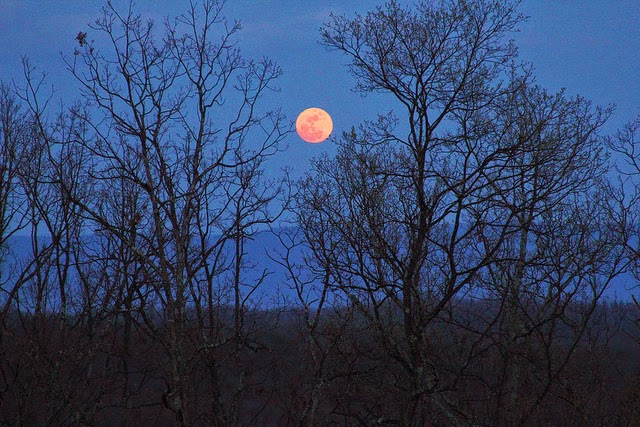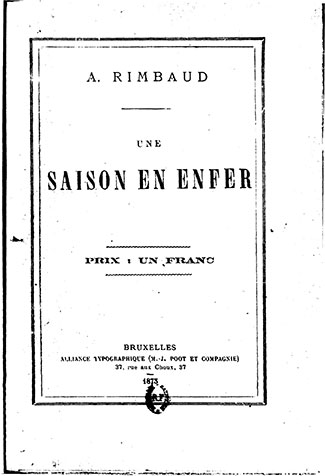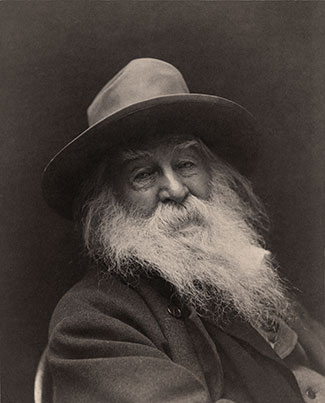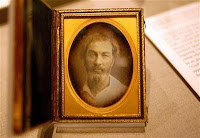Add a Comment
Viewing: Blog Posts Tagged with: walt whitman, Most Recent at Top [Help]
Results 1 - 12 of 12
Blog: Galley Cat (Mediabistro) (Login to Add to MyJacketFlap)
JacketFlap tags: Videos, Resources, Walt Whitman, TED Talks, Add a tag
Blog: OUPblog (Login to Add to MyJacketFlap)
JacketFlap tags: heroism, Captain Ahab, the canon, Literary Greatness and the American Sublime, The Daemon Knows, *Featured, Arts & Humanities, Books, Literature, shakespeare, william blake, Ishmael, moby dick, hamlet, walt whitman, scholars, Herman Melville, american literature, Add a tag
Our two most ambitious and sublime authors remain Walt Whitman and Herman Melville. Whitman creates from the powerful press of himself; Melville taps his pen deeply into the volcanic force of William Shakespeare.
The post “Daemonic preludium”, an extract from The Daemon Knows appeared first on OUPblog.
Blog: Galley Cat (Mediabistro) (Login to Add to MyJacketFlap)
JacketFlap tags: Libraries, Authors, Walt Whitman, T.S. Eliot, John Keats, Philip Levine, Isaac Gewirtz, Add a tag
 The New York Public Library (NYPL) is hosting a pop-up exhibit in honor of Pulitzer Prize-winning poet Philip Levine at the Stephen A. Schwarzman Building.
The New York Public Library (NYPL) is hosting a pop-up exhibit in honor of Pulitzer Prize-winning poet Philip Levine at the Stephen A. Schwarzman Building.
Some of the items on display include the first page of T.S. Eliot’s famed poem “The Waste Land” (which includes annotations from Ezra Pound), a handwritten manuscript of John Keats’ piece “Sonnet to Sleep,” and a first edition copy of Walt Whitman’s beloved book Leaves of Grass. A closing date has been scheduled for June 25th.
Curator Isaac Gewirtz had this statement in the press release: “Philip Levine was a poet of the working man and woman, but he was also a poet filled with wonder at the mystery of existence. We are fortunate that the history of his astonishing creativity, which sprang from these sources, is found in his papers at the The New York Public Library.”
Add a CommentBlog: Seize the Day (Login to Add to MyJacketFlap)
JacketFlap tags: Walt Whitman, Verse, oh my, Lucky March, Oh me, plumb crazy, Add a tag
Hi folks, I'm a novelist as well as a picture book author. I am especially fortunate that way, lucky, if you will. I am half a century old and over the course of my journey, the nature of luck has been made clear to me. This month my series is Lucky March, where I'm exploring the wonder of luck in our lives.
Oh, March has brought waves of luck to my life. My book Plumb Crazy is almost ready to be released again as an ebook and in paper for the first time. It will be under my alter ego name: Cece Barlow! I'm traveling to Washington state to visit with dear friends in April for a writing retreat marathon. I feel grateful and happy. I am just glad to be part of the verse.
This week I will respond to Walt Whitman's poem, "Oh, me! Oh, life!" Go here to read his genius words.
Here is truth to me. I don't really understand myself, and life is so far beyond me--like the stars to a speck of dirt. And yet I'm caught up with the mundane of my species. I see multitudes people gossiping, slandering, and back-stabbing. I live with folks who share knowledge to ends of the Earth and wonder: has it helped? Art has lost value, faith is fading except for the worst of it, and foolishness flows over the edges of every vision, in this ad-driven, branded, socialized bumper sticker world. The sideshow prophets declare that written words are dying.
Don't think I'm not caught up in it all. I am in that multitude, my head turning toward the visual nonsense, the profane silliness, and the unholy devaluation, when I could spend this moment being so much more. Yes, I am just as faithless as the rest.
Here's the thing. I want light. I want meaning, I want purpose, but I am mired in empty useless years that I wasted for no good reason. I did not open my eyes earlier, so I must open them now. I am woven in the fabric of my times. I am asking, shouting really at the great universe, struggling to not let the waves of sadness overcome me.
What good can I do? I look out but those words fall on my beating heart. Life! What good can I do? My hands curl into fists, and I shake like a leaf being ripped by a storm wind.
The answer comes to me, whispering, still, soft. A voice! You are here, dear one.. You were born. You breathe. You are are. This is the great poem, and you are allowed to contribute one verse to it all. Write your verse. This is the gift of life.
Lucky me! Lucky you! I hope you think about the verse you are writing. I pray that you do the most with what you have to offer. We all need you to do that. I will be back next week with more Lucky March.
NO doodle this week! But here is a sneak peek at my book cover for PLUMB CRAZY! I am so excited to share this with you! I hope that you share it too!
"The basic hidden thing that every Loser Girl knows—she has value, like every person, star, whale, rock, and slug. The whole universe has its share of risks. Slugs get stepped on, whales are hunted, stars explode, and people, well, people are fragile, easy to break. She was a secret unseen commodity, like di-lithium crystals found on planets that few would visit and even fewer could endure. Riches hid inside of her. No one had found them yet. But they would. It was just how the universe was put together."
Blog: A Year of Reading (Login to Add to MyJacketFlap)
JacketFlap tags: Poetry Friday, stars, Walt Whitman, Add a tag
 |
| Flickr Creative Commons photo by JosMetadi |
When I Heard the Learn'd Astronomer
by Walt Whitman
When I heard the learn’d astronomer,
When the proofs, the figures, were ranged in columns before me,
When I was shown the charts and diagrams, to add, divide, and measure them,
When I sitting heard the astronomer where he lectured with much applause in the lecture-room,
How soon unaccountable I became tired and sick,
Till rising and gliding out I wander’d off by myself,
In the mystical moist night-air, and from time to time,
Look’d up in perfect silence at the stars.
We are learning about the Solar System in science, and while the facts about the planets are intriguing, it's the students' questions and wonderings that are the most compelling. (How I wish we could have had a sleepover at school this week so that we all could have watched the lunar eclipse together!) They are grappling (and rightly so) with the sheer vastness of our galaxy...and the universe, and with the ways scientists can know distances between or temperatures on the sun and the planets. We watched this video of a hexagonal hurricane on Saturn and they were fascinated by the way the scientists replicated the storm in the lab. The idea that scientists build models to explain and understand the world is new to them.
I need to write about our Genius Hour at some point. What I'm aiming for, but not achieving (YET) is for the work they do each Friday afternoon to come from their own curiosity and desire to explore. I'm beginning to understand, at the ground level, the data that shows that school dampens a child's natural curiosity. What I'm hoping to see, over the course of this year, is that it can be reignited, with time and scaffolding.
I'm hoping for students who would rather slip out of my classroom and look up "in perfect silence at the stars."
In a change of venues, Tricia has the Poetry Friday Roundup today at The Miss Rumphius Effect.
Blog: OUPblog (Login to Add to MyJacketFlap)
JacketFlap tags: Books, Music, Literature, walt whitman, Rock and Roll, Eddie and the Cruisers, Rimbaud, Humanities, *Featured, TV & Film, Arts & Leisure, Kirk Curnutt, A Historical Guide to F. Scott Fitzgerald, A season in hell, P. F. Kluge, Add a tag
By Kirk Curnutt
Ask folks who came of age in the 1980s what they remember about the movie Eddie and the Cruisers and one of the following responses is likely:
- It spawned the great rock-radio staple “On the Dark Side” and briefly made MTV stars of the improbably named John Cafferty and the Beaver Brown Band.
- It was such a shameless Bruce Springsteen rip-off that Boss fans considered it as sacrilegious as devout Christians do Jesus Christ Superstar.
- It had a whiplash-inducing twist ending that Roger Ebert called “so frustrating, so dumb, so unsatisfactory that it gives a bad reputation to the whole movie.”
- It was a box-office flop that thirty years ago this month shocked Hollywood by becoming a surprise HBO hit.
- It was a movie you rented repeatedly during the decade’s video boom because it fit perfectly VHS’s promise of cheap home entertainment: undemanding, toe-tapping, and eminently re-watchable, it was an ideal 99-cent diversion that helped you forget VCRs cost $500 and were as boxy as Samsonite suitcases.
What you’re less likely to hear, unfortunately: it was based on one of the best, most criminally underappreciated rock ‘n’ roll novels ever.
In a preface to Overlook Press’s 2008 reissue (the book’s first widely available trade paperback), no less than Sherman Alexie admits he never knew Eddie was originally a novel by P. F. Kluge until deep into his own career, long after “obsessing” over the movie as a high-schooler. It’s indicative of how the film overshadows its source material that Kluge’s Eddie doesn’t even make this supposedly comprehensive list of rock novels published since the 1950s.
The novel’s relative obscurity is a shame, for as Alexie notes, it has literary “ambitions and secrets and qualities” that far surpass the movie’s “mainstream” pleasures. Director Martin Davidson, who co-wrote the script with his wife, Arlene, made several changes to Kluge’s tale of a Jersey rock star who may or may not be haunting former bandmates twenty years after his supposed death. The most significant is seemingly the most cosmetic. Whereas Kluge conceived hero Eddie Wilson as a Dion-esque doo-wop rocker, Davidson turned him into an awkward splice of Springsteen and Jim Morrison. In so doing, the filmmaker altered the literary inspiration that in Kluge gives the musician a model for imagining rock ‘n’ roll as an art form instead of mere entertainment. The change is decisive to how differently each version of Eddie depicts the purpose of popular music.

Une saison en enfer, Arthur Rimbaud, Bruxelles, Alliance typographique, 1873. Public Domain via Wikimedia Commons.
In the movie, college dropout Frank “Wordman” Ridgeway, the story’s Nick Carraway, introduces Eddie to the 19th-century French symboliste Arthur Rimbaud. Literature spurs the hunky frontman to make “serious” music instead of cranking out bar-band favorites for Jersey beachgoers: “I want songs that echo,” Eddie insists. “The [music] we’re doing now is like bed sheets. Spread ’em, soil ’em, ship ’em out to laundry. Our songs — I like to fold ourselves up in them forever.” Soon enough, Eddie pens a concept album called A Season in Hell, after Rimbaud’s most famous work. His slimy record-company owner refuses to release it, however, because the music sounds “like a bunch of jerkoffs making weird sounds.” The rejection sends Eddie squealing away in his ’57 Chevy, which hurtles off the Raritan Bridge, either an accident or a suicide. The Cruisers are forgotten for two decades later until an Entertainment Tonight-type reporter begins hyping Hell as an ominous foreshadowing of the late sixties, “a new age, an age of confusion, an age of passion, of commitment!” Suddenly, someone claiming to be the dead rock star is stalking the surviving Cruisers, intent on finally releasing the missing opus so the public can recognize Eddie’s brilliance.
Serious scholarly papers have drawn parallels between Eddie and Rimbaud, but the script’s invocation of the poet never really rises above literary window dressing. Davidson mainly uses Rimbaud to allude to Morrison, who idolized the literary libertine and who, according to a farcical urban legend, faked his 1971 death to escape the rock biz (much as Rimbaud abandoned literature before he was twenty). The movie asks us to believe that the Beatlemania-era Eddie predicted the Dionysian extremes of the Doors’ “The End” or (God help us) “Horse Latitudes,” but the song that’s supposed to illustrate his visionary genius, “Fire,” hardly qualifies as “weird sounds”. It’s merely an arthritic gloss on Springsteen’s “Adam Raised a Cain” with none of the Boss’s blistering vitality.

Walt Whitman. Photo by George C. Cox, restoration by Adam Cuerden. Public domain via Wikimedia Commons.
For Kluge’s Eddie, by contrast, the spirit father isn’t Rimbaud but Walt Whitman, and Eddie’s magnum opus is Leaves of Grass. Having seen Leaves appropriated to do everything from woo interns to expose unlikely meth kingpins, I’ll be the first to say that the Good Gray Poet’s popularity as the Go-To Lit Reference sometimes leaves me craving a Longfellow revival. Yet his role in Kluge isn’t gratuitous. Whitman inspires Eddie to reimagine rock ‘n’ roll as the vox populi, a medium not for becoming famous but for creating the true song of democracy. To produce his rock version of Leaves, Eddie recruits black and white greats from Elvis to Sam Cooke to Buddy Holly (the novel is set in 1957-58, a half-decade earlier than the film). Their mission is to snip the American barbed wire of segregation through a series of secret jam sessions designed to “to bring off the impossible, some fantastic union of black and white music.” What breakthroughs Eddie achieved before his supposed death is as compelling a page-turner as the mystery of who’s harassing the surviving Cruisers. (Spoiler alert: Eddie does not predict “Ebony and Ivory”).
In ditching Whitman for Rimbaud, Davidson’s film became a story not about the Gordian knot of race in American music but about rock-star greatness and fame. That point is bashed home like a gong by the movie’s trick ending, which reveals Eddie is indeed alive but indifferent to the hullaballoo the media creates when his masterwork is finally released. Despite the adaptation’s defects, Kluge speaks appreciatively of it, and rightly so: as a cult favorite, the movie kept the novel’s name alive during the decades the book was out of print. Besides, when the other movie based on your writing is Dog Day Afternoon, you can afford to be generous.
Nevertheless, the lack of attention Book Eddie receives feels like a missed opportunity for rock novels in general. The genre is a diverse, unruly one. Some of its entries are romans à clef that do little more than pencil fictional names into legends rock fans already know by heart (Paul Quarrington’s Brian Wilson-retelling Whale Music). Many others are coming-of-age novels in which that form’s traditional theme of lost innocence plays out like a Behind the Music episode, all downward-spiral cocaine and coitus. Still others are less about music-making than about the grotesquery of fame and fan worship (Don DeLillo’s Great Jones Street). What rock novels aren’t nearly as often about is race — or, at least, the alchemies of ethnic interchange explored in such great nonfiction music histories as Peter Guralnick’s Sweet Soul Music: Rhythm and Blues and the Southern Dream of Freedom (1986). A handful of exceptions do come to mind, Alexie’s own Reservation Blues (1995) most notably. Yet for the most part storylines about ahead-of-their-time geniuses predominate, and frankly, the plot of making personal art instead of appeasing a hits-happy public is as tired as the playlist at my local oldies station.
The idea of rock ‘n’ roll as both the promise and impasse of a racially egalitarian barbaric yawp, on the other hand… That’s a song in fiction we still don’t hear nearly enough.
Kirk Curnutt is professor and chair of English at Troy University’s Montgomery, Alabama, campus, where Scott Fitzgerald met Zelda Sayre in 1918. His publications include A Historical Guide to F. Scott Fitzgerald (2004), the novels Breathing Out the Ghost (2008) and Dixie Noir (2009), and Brian Wilson (2012). He is currently at work on a reader’s guide to Ernest Hemingway’s To Have and Have Not. Read his previous OUPblog posts.
Subscribe to the OUPblog via email or RSS.
Subscribe to only literature articles on the OUPblog via email or RSS.
The post Roll over, Rimbaud: P. F. Kluge, Walt Whitman, and Eddie and the Cruisers appeared first on OUPblog.
Blog: Galley Cat (Mediabistro) (Login to Add to MyJacketFlap)
JacketFlap tags: Poetry, Walt Whitman, Add a tag
 The novelistic television show Breaking Bad concluded the first half of its season this weekend with an episode called “Gliding Over It All”–a title drawn from a Walt Whitman poem, “Gliding O’er all.” Here is the Whitman poem:
The novelistic television show Breaking Bad concluded the first half of its season this weekend with an episode called “Gliding Over It All”–a title drawn from a Walt Whitman poem, “Gliding O’er all.” Here is the Whitman poem:
Gliding o’er all, through all,
Through Nature, Time, and Space,
As a ship on the waters advancing,
The voyage of the soul—not life alone,
Death, many deaths I’ll sing.
As you can see by this recap of the episode, Whitman’s Leaves of Grass figured heavily in the plot of the show, both thematically and as a plot device. If you want to read the book behind the plot, follow this link to download a free eBook copy of Leaves of Grass.
New Career Opportunities Daily: The best jobs in media.
Add a CommentBlog: Galley Cat (Mediabistro) (Login to Add to MyJacketFlap)
JacketFlap tags: Lewis Carroll, Mark Twain, Jonathan Swift, sherlock holmes, eBooks, Jane Austen, Walt Whitman, Charlotte Bronte, Oscar Wilde, Charles Dickens, James Joyce, Franz Kafka, Agatha Christie, Victor Hugo, Herman Melville, Niccolo Machiavelli, Infographics, Edgar Rice Burroughs, Bram Stoker, Mary Wollstonecraft Shelley, Arthur Conan Doyle, Henry David Thoreau, Leo Tolstoy, J.M. Barrie, Alexandre Dumas, Jacob Grimm, Wilhelm Grimm, Sun Tzu, Sir Arthur Conan Doyle, Felix Salten, Ludwig Wittgenstein, Alan Sullivan, Apostle John, Benjamin L. D'Ooge, Dante Alighieri, E.M. Berens, Elsie Finnimore Buckley, Elsie Lincoln Benedict, Erwin Rosen, Fortune Du Boisgobey, H. R. Coulthard, Johnston McCulley, Ralph Paine Benedict, Samuel H. M. Byers, Therese de Dillmont, Vatsyayana, William J. Long, Add a tag
What’s your favorite kind of book? We’ve created a giant flowchart to help you browse the top 50 free eBooks at Project Gutenberg.
Click the image above to see a larger version of the book map. Your choices range from Charles Dickens to Jane Austen, from Sherlock Holmes to needlework. Below, we’ve linked to all 50 free eBooks so you can start downloading right now. The books are available in all major eBook formats.
Follow this link to see an online version of the flowchart, complete with links to the the individual books.
New Career Opportunities Daily: The best jobs in media.
Add a CommentBlog: A Year of Reading (Login to Add to MyJacketFlap)
JacketFlap tags: Life, Poetry Friday, Walt Whitman, Add a tag
O Me! O Life! By Walt Whitman O Me! O life!... of the questions of these recurring; Of the endless trains of the faithless--of cities fill'd with the foolish; Of myself forever reproaching myself, (for who more foolish than I, and who more faithless?) Of eyes that vainly crave the light--of the objects mean-- of the struggle ever renew'd; Of the poor results of all--of the plodding and sordid crowds I see around me; Of the empty and useless years of the rest--with the rest me intertwined; The question, O me! so sad, recurring--What good amid these, O me, O life? Answer. That you are here--that life exists, and identity; That the powerful play goes on, and you will contribute a verse. Yes, that powerful play is going on, and we are What tracks will we leave in these children's lives? On these children's hearts? Irene has the Poetry Friday roundup today at Live Your Poem... |
Blog: James Preller's Blog (Login to Add to MyJacketFlap)
JacketFlap tags: To Kill a Mockingbird, Walt Whitman, Readings, Harper Lee, Robert McKee Story, Books on Bullying, Bystander, Boo Radley, best books on bullying, James Preller Bystander, A culture cannot evolve without honest powerful storyte, best bullying books for middle school readers, Bystander lesson plan, characteristics of a bully, Good books for anti-bullying programs, Robert McKee quotes, walk in someone's shoes, What is a bully, What will happen to the characters in Bystander after t, bullying, Add a tag
As part of a late summer assignment, I received a terrific letter from Zander in Brooklyn, including his answer to the question, “What will happen to the characters in Bystander after the story?”
Here’s an excerpt from that letter . . .
Thanks so much for answering my questions. I really loved your book! I did a little writing about what I thought might happen to some of the characters in the future. I was wondering if you have ever thought about this? Do you think Griffin will continue to be a bully? What about the other characters? I also have to ask the obvious question — were you a bully or where you bullied in school? If not, why did you want to write this book? I’m really looking forward to your answers.
Zander
What I think will happen to the characters after the story:
I think Griffin will still be the bully, but he will be a lone bully with no clique by his side. About twenty pages before the book ended, Griffin’s gang separated from him; they were fed up with Griffin and his ways and felt bad for the people they hurt and picked on. Griffin may form a new clique, but I think the same thing will happen that happened to the original click, they will get fed up with Griffin’s ways. Eventually, Griffin will probably find out that this whole bully thing isn’t working out for him and turn over a new leaf, but I’m not so sure about that either; it’s not exactly Griffin’s way. The other problem is the relationship between Griffin and Griffin’s father. If the way Griffin’s father acts changes, Griffin will change with him. You see, Griffin mimics his father’s actions, and if those actions change, I have a good feeling that a new Griffin will be born. If they would go into therapy, this could be achieved. But since that didn’t happen in the story, it’s unlikely that it will happen now. Thus having Griffin stay the same.
I also think that Mary and Eric will still hang out a lot, they might be considered boyfriend and girlfriend, but I’m not sure. I also think that Griffin’s original clique will turn into Eric’s clique, or Griffin’s original clique will accept Eric as a member; either way, Mary will no longer be Eric’s only friend. Before I finished the story, I thought to myself that it would not be a “…and they all lived happily ever after” ending, and I was right. If the story continued on, I still think this would be true
Add a Comment
Blog: my juicy little universe (Login to Add to MyJacketFlap)
JacketFlap tags: DC Metro area, walt whitman, Add a tag
I've just come across this article http://www.reuters.com/article/2011/04/12/us-usa-civilwar-whitman-idUSTRE73B7QU20110412, which explains better to me why a nearby high school is called Walt Whitman and why the following lines adorn an entrance to the Dupont Circle Metro station:
Thus in silence in dreams' projections,
Returning, resuming, I thread my way through the hospitals;
The hurt and wounded I pacify with soothing hand,
I sit by the restless all dark night - some are so young;
Some suffer so much - I recall the experience sweet and sad...
Walt Whitman, from Leaves of Grass, 1876
Somehow I'd missed the deep USGOV connection...3000 documents!
Blog: Poetry for Children (Login to Add to MyJacketFlap)
JacketFlap tags: Langston Hughes, Walt Whitman, America, Walt Whitman, Langston Hughes, America, Add a tag
 This is the week—some 42 years ago—that I became an American citizen. I was remembering the day fondly, and decided to make a poetry connection. I was 10 years old and my German-born parents were becoming naturalized citizens, so I was, too. I remember getting out of school, going to the Dallas courthouse, the seriousness and the celebration, and the chocolate milk shake that followed. What a day! A few years later, as a teenager, I helped my Oma (grandmother) master enough American history in broken English to pass the questions that were asked of her as she became an American citizen, too. This is the little old lady who stood up to Hitler and was a German refugee fleeing with five children and an elderly mother in tow. I am still touched when I see swearing in ceremonies and look at all the different faces that are proud to call the United States home. I know it may seem corny, but this is very real in my family.
This is the week—some 42 years ago—that I became an American citizen. I was remembering the day fondly, and decided to make a poetry connection. I was 10 years old and my German-born parents were becoming naturalized citizens, so I was, too. I remember getting out of school, going to the Dallas courthouse, the seriousness and the celebration, and the chocolate milk shake that followed. What a day! A few years later, as a teenager, I helped my Oma (grandmother) master enough American history in broken English to pass the questions that were asked of her as she became an American citizen, too. This is the little old lady who stood up to Hitler and was a German refugee fleeing with five children and an elderly mother in tow. I am still touched when I see swearing in ceremonies and look at all the different faces that are proud to call the United States home. I know it may seem corny, but this is very real in my family.
And there are many poets who have written about their feelings about this country, both good and bad. Maybe that’s why I love Langston Hughes and his “I, too am America” poem—although I recognize a very different struggle there. Or why I relate to Janet Wong’s poem, “Speak up” about kids taunting a child who speaks another language. Many Latino/Latina poets have addressed this issue of immigration, language difference, and cultural assimilation in their work, including Pat Mora, Gary Soto, Juan Felipe Herrera, and Francisco X. Alarcón. One poetry collection that really speaks to me on this issue is Monica Gunning’s America, My New Home (San Francisco, CA: Children’s Book Press, 2004). Although Gunning is my mother’s age, and comes from Jamaica not Germany, her poems speak with wonder about the contrasts between her old home and new home, and about the challenges in straddling old ways and new, in ways that echo my own experiences and emotions. Across cultures, there are still children for whom “home” is a very real question, whose families talk seriously about loyalty and identity, and who walk the tightrope of keeping family traditions while being “real” Americans.
I looked for the perfect poem to share and decided to try an experiment. My 19 year old son has been educating me about “mashups,” a new trend in music to blend parts of many different songs into one. It’s led to interesting discussions between us about artistic freedom and copyright infringement, but it has also prompted me to think about what that might look and feel like in other arts—like poetry. So, with all due respect to two fantastic poets, Langston Hughes and Walt Whitman, here is a “mashup” of two of their poems meshed into one: “I, Too” and “I Hear America Singing.”
I, too, sing America.
I hear America singing, the varied carols I hear;
I am the darker brother.
They send me to eat in the kitchen
When company comes,
But I laugh,
And eat well,
And grow strong.
Tomorrow,
I'll be at the table
When company comes.
Nobody'll dare
Say to me,
"Eat in the kitchen,"
Then.
Besides,
They'll see how beautiful I am
And be ashamed—
I, too, sing America.
I hear America singing, the varied carols I hear;
Those of mechanics—each one singing his, as it should be, blithe and strong;
The carpenter singing his, as he measures his plank or beam,
The mason singing his, as he makes ready for work, or leaves off work;
The boatman singing what belongs to him in his boat—the deckhand singing on the steamboat deck;
The shoemaker singing as he sits on his bench—the hatter singing as he stands;
The wood-cutter’s song—the ploughboy’s, on his way in the morning, or at the noon intermission, or at sundown;
The delicious singing of the mother—or of the young wife at work—or of the girl sewing or washing—Each singing what belongs to her, and to none else;
The day what belongs to the day—At night, the party of young fellows, robust, friendly,
Singing, with open mouths, their strong melodious songs.
I, too, am America.
Thank you, Langston and Walt. Langston’s words are in brown and Walt’s are in green. FYI. What do you think? Is this poetry sacrilege? Or new and innovative? I’m not sure…
Join the rest of the Poetry Friday Round Up at The Simple and The Ordinary.
Picture credit: Me at 5, attending kindergarten in Germany









(Those tracks look wolfy to me, so you know I love them!) Thanks for this taste of Whitman this morning, Mary Lee, and best wishes as you wind up these last wheeling days with a flourish!
What tracks will we leave in these children's lives? On these children's hearts?
Yes, indeed...this is always such a bittersweet time of year with our kiddos. I miss them already!
Intriguing tracks in your photo. Good luck with winding up another year of good learning :)!
Transitions and changes are hard and bittersweet. Thanks for sharing Whitman this morning.
OK, I'm not a Whitman fan, but I read it anyway, just because it was you:>) And I was rewarded by your lovely thoughts on the poem afterward!
I like Whitman in small bites . . . like this -- not in big wolfy bites. So thank you!
And best to you as you wrap up another school year. I retired from that gig a few years ago, and though I don't miss the hububububububub of year end, I miss those sweet good-byes of 5th graders going off to middle school.
Jet
What a beautiful school year ender indeed. I understand what you mean about hurtling, careening, rushing through the finish line, I can sense the stressed-out vibe everywhere! :) Beautiful choice. :)
Best wishes for a fine ending, Mary Lee. It certainly is busy, isn't it? Love that "contribution of a verse".
I agree with Jet; Whitman is best in small doses. I like your reminder about the tracks we're leaving.
I'm with Ruth about the reminder of our tracks. We sure leave them whether we intend to or not... so why not be intentional? We. Are. Here. Thank you so much for sharing!
We always leave more tracks than we know. Enjoy this verse.